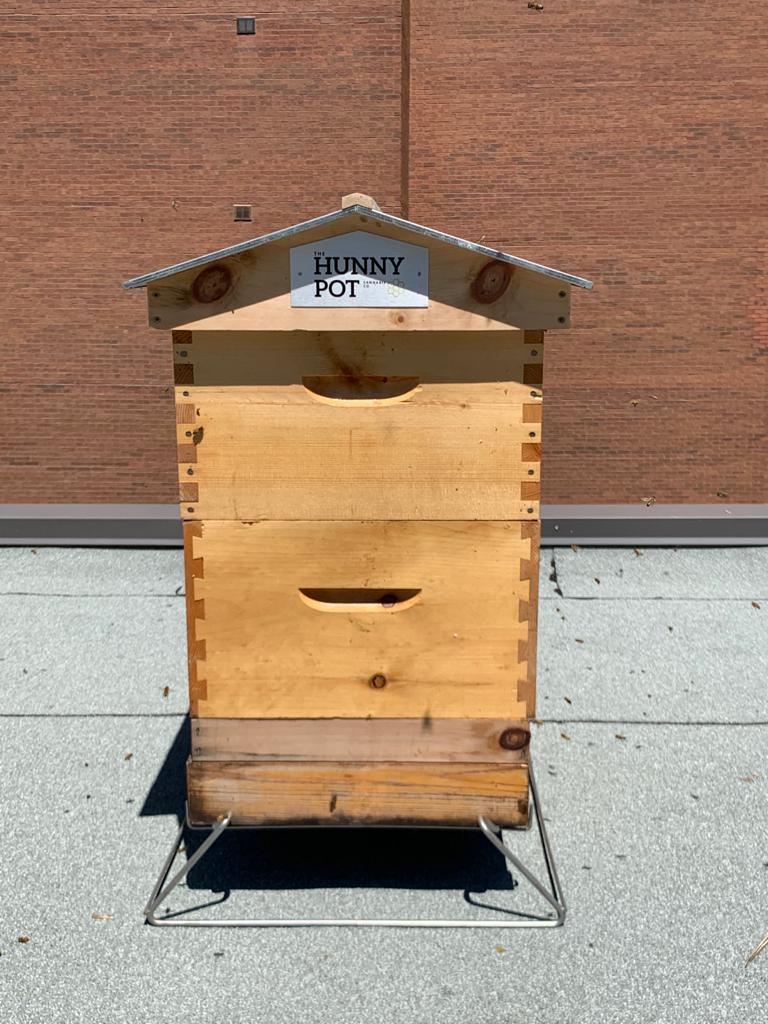Jun 11, 2020
The Hunny Pot X Alvéole

The Hunny Pot is taking thousands of bees under its wing! We’re proud to take part in the movement for a more eco-conscious city by installing two beehives on the roof of our 202 Queen Street West location on June 8th.
Our thousands of new colleagues will pollinate the urban flora that surrounds us during the summer. At the end of the season, we’ll harvest their honey and share it with our community.
Our project is realized in collaboration with Alvéole, a social beekeeping company. Since 2013, Alvéole has partnered with hundreds of companies and schools on beekeeping projects.
The installation of a hive in an urban environment requires minimal resources, but brings a flood of direct and indirect benefits, notably social and ecological. The practice brings together city dwellers, allows the re-purposing of an unused space, highlights a variety of issues related to the environment, industrial agriculture, pollination and greening while producing local, artisan honey.
Populations of bees, butterflies, bumble bees and other pollinators are declining around the world. Just like honey bees, these pollinators are facing the threat of industrial agriculture (such as the massive use of pesticides and habitat loss) as well as climate change.
To slow the decline in pollinator populations, conventional agricultural practices need to be radically changed to support ecological agriculture, which means growing without synthetic pesticides, using crop rotation, creating and preserving habitats, and protecting water sources from contamination.
We know there’s one thing you must be thinking about… But no need to worry, bees really aren’t interested in human beings. They have one goal, and one goal only: to collect nectar and pollen from flowers within a 5 km radius of their hive, and bring it back to ensure the colony’s development. Plus, bees die when they use their sting. It causes them to lose their stinger and a part of their abdomen – meaning they really have no interest in doing so, unless they feel their colony is threatened.
FACTS
- Urban beekeeping is a great way to educate city dwellers to the crucial role of bees in food production
- Bees pollinate more than 130 varieties of fruits and vegetables around the globe- that’s a third of our food supply.
- Almonds, cranberries, apples, blueberries, broccoli, cauliflower, celery, asparagus, avocados, pulses: these are a few examples of crops that entirely depend on pollinating insects.
- The decline in pollinators coincides with a growth in demand for agriculture, resulting in a rise in food cost.
Current Bee Count: 13,500
We will be sharing updates about our hives regularly! Stay connected for more information, and if you have any questions please feel free to reach out to us: [email protected]
